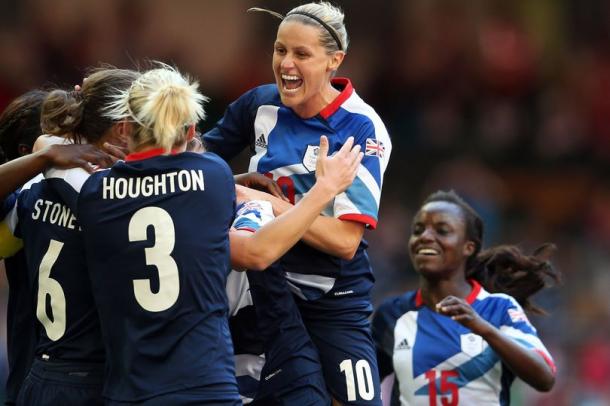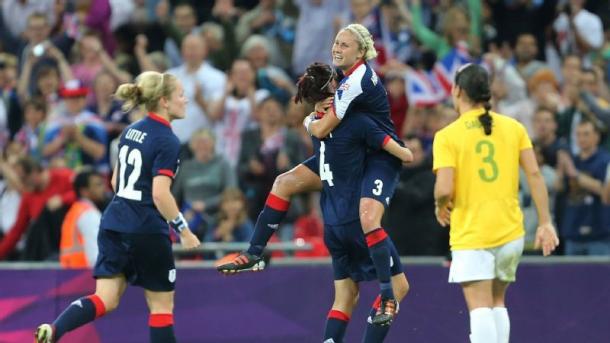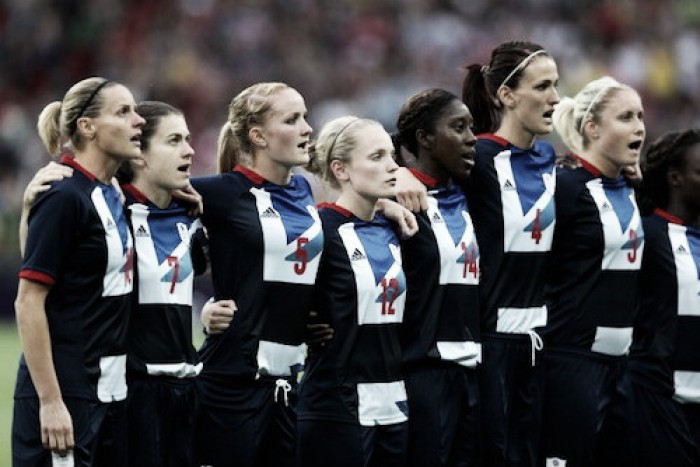It has today been announced that The Football Association (The FA) - England’s ‘US Soccer Federation’ - will be putting together a British team to compete at the 2020 Tokyo Olympics.
This news comes just a day after The FA announced their intentions to bid to host the 2021 European Championships. Perhaps even more significantly, they also committed to doubling female participation in the game by 2020, riding on the back of the wave of the Euros interest, which saw TV figures hit all-time highs (a peak audience of 4 million viewers watched England in the semi-final).
So women’s football is growing in England, and their national team are on the rise - but what’s the big deal with the Olympics? And what’s the history of Team GB?
Despite England’s relative success both at the 2017 European Championship and prior to that in the 2015 World Cup, this is still quite a surprising announcement given the amount of resistance shown from the other associations involved.
The history of Team GB women’s football
After the massive overachievement of England’s bronze medal at the 2015 World Cup, there was a lot of excitement about seeing what the team could achieve at the 2016 Rio Olympics. Because - unlike CONCACAF, who have a separate qualifying tournament - the top three European teams from the World Cup automatically go through to the following year’s Olympics, England did earn a berth for Rio - but didn’t use it. A similar situation arose when England were again in the top three UEFA teams at the 2007 World Cup, but didn’t feature in Beijing.

This doesn’t seem to make much sense on the surface until you remember that in all other sports in the Olympics, English athletes compete as Team GB (officially the Great Britain and Northern Ireland Olympic team), selected alongside competitors from Scotland, Wales, and Northern Ireland. The issue with the football teams arises because the nations compete individually in other FIFA and UEFA competitions.
The worry is that FIFA could force the countries to lose their individual status and compete as Team GB in every competition - a move which would be detrimental to all parties as each Football Association unsurprisingly wants to protect their players and autonomy as much as possible.
There’s no doubt this is a unique and very intricate issue but today’s announcement seems to show that whilst it will be the English FA leading the team, the other associations are not going to stand in their way.
London 2012
The only previous time that Team GB women’s football has competed was in the 2012 London Olympics when the various associations overcame their differences in order to make sure the Olympic team fulfilled their rights as hosts to have an athlete or team compete in every event regardless of qualification.

That team was coached by the then-manager of England, Hope Powell, and contained just two non-English players: Scotland’s Ifeoma Dieke and Kim Little. If Team GB do compete in Rio you can probably expect a similar makeup, especially with the FA in charge of the team. When you look at it this way, it’s easy to see why the other associations wouldn’t want to risk their independent status over one or two players playing in a tournament.
Looking forward to Tokyo
Before anyone gets too excited, it’s important to remember that a similar announcement was made prior to the Rio Olympics, but the team was soon shut down by the opposing associations.
And, of course, England still have to qualify - that is, be one of the top three European teams in the 2019 World Cup. It’s a tough ask, but the way women’s football is going in England, it seems well within reach.









































